My audacious plan to make Cambodia prosperous (part 1) – An introduction to Startup Cities
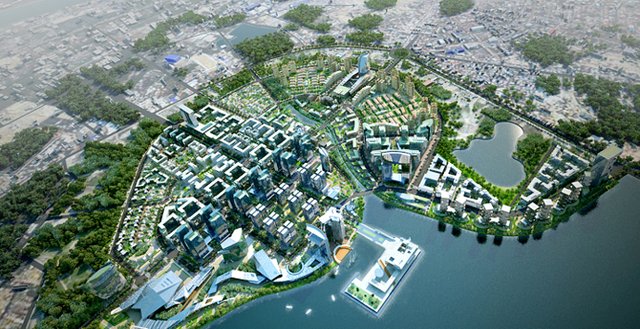
This is the first of a three-part series in which I will discuss how we could use Startup Cities to make poor countries like Cambodia prosperous. In this part, I will introduce what a Startup City is. In the next two parts, I will discuss my plan in greater detail – hence describing the creation of Lotus City, a Cambodian Startup City, and how it could improve the nation.
Have you ever heard of startup-cities? A Startup City is a special economic development zone where we can experiment with social rules and regulations so that we can find optimal legislation that encourages entrepreneurship, and economic and social development. The fundamental characteristic of a Startup City is its agility in law creation.
1. Why rules and regulations matter
Governmental rules and regulations greatly affect the development and well-being of a nation. They influence all aspects of life.
One could for example compare North and South-Korea, two countries with two very distinct forms of social organization, but similar cultural traditions and natural resources. They were separated in 1945. The North came under communist rule, whereas the South embraced democracy and capitalism. 70 years later the differences are striking:
- South-Korea’s GDP per capita is 18 times larger
- Internet penetration in South-Korea is 815 times greater
- Life expectancy rate in South-Korea is 10 years longer
- The height of South Korean pre-school boys are on average 4 centimeters longer
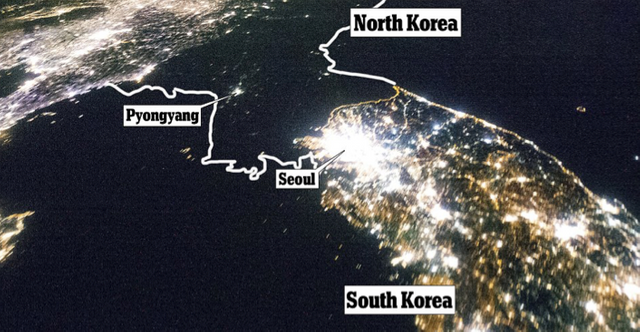
Image source
Given that progress and well-being heavily depend on the structure of society, mankind could make a huge step forward by letting social entrepreneurs enter the industry of rules and regulations and by letting millions engage in the experimentation of what rules should be adopted or discarded. Zachary Caceres, Executive Director of the Startup Cities Institute, asserts that
[M]arkets are problem-solving machines. Millions of people all search through trial-and-error for some kind of solution. We accept this as natural in most areas of our lives. But not the most important one: the way we structure communities themselves.
It is with respect to the agile adoption in rules and regulations that we can learn a lot from Startups.
2. What is a Startup?
According to the economist and philosopher Friedrich Hayek, knowing what we can know is as important as discovering what is knowable. In "The Use Of Knowledge In Society", Hayek maintains that there are limitations to a man’s knowledge of social processes due to the fact that information is dispersed – as much as there is a division of labour in society, there is also division of knowledge in society. This makes it impossible for any person to comprehend the full processes of society entirely. Since knowledge is decentralized and each individual has unique information with regards to his or her particular circumstances, it is best to leave those with local knowledge to take decisions on how to plan their lives. It must be noted that these decisions are never made with perfect knowledge. Much of our knowledge becomes available only by discovery through trial and error or experimentation.
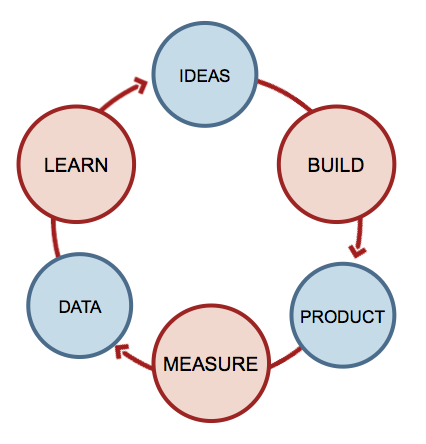
Image source
A startup is a problem-solving powerhouse that is good at discovering and utilizing dispersed knowledge to create a product or service that is highly demanded or needed in society. This discovering process relies on a creative process of building, measuring and learning. It is through this process that the startup receives quick feedback on what product or service it should release. First, ideas for a new product or service are formed. Then, resources are used to create the product or service. Thereafter, the performance of the product is measured which leads to new data and hence increases our learning on how to improve the product or whether it should be discarded.
3. Startup Cities utilize the Startup’s problem-solving process
Entrepreneurs and political reformers often share the same problems of too much complexity, too little feedback and high risks for making small errors. Highly technological companies like Google, Über and Virgin are often constrained by the legislation of their native countries to experiment with their technologies. For example, to develop drugs and to have it approved by the drug administration in the USA often takes 10-15 years whereas this used to be 4-7 years 50 years ago and while governments are discussing the regulation of Bitcoin and blockchain technology, the Bitcoin market capitalization has grown to $10 billion and many of the biggest banks are already experimenting with financial payments on the blockchain. Technological innovation happens at a higher pace than regulatory innovation. Social entrepreneurship, however, could speed up the innovation of rules and regulations.
Startup Cities treat rules and regulations as if they are social technologies. They implement the agile problem-solving process of startups within the realm of rules and regulations, and understand that competitive advantages can be gained by implementing good rules.
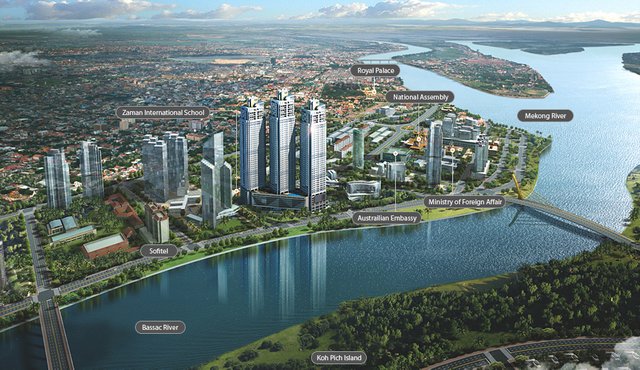
Image source
Startup Cities are politically neutral and can take any form of social organization. They can use political innovations as private courts, new social services, having their own law enforcement agencies, focus on creating an IT-hub and blockchain technologies or on medical innovations etc. They make politics more agile and give feedback on what policies are most conducive to human flourishing by letting it compete with the legal framework of the host nation and other nations.
To attract capital, citizens, and ideas, the Startup City is incentivized to innovate and experiment with public policies and to improve regulations constantly. It is through this competition of city/nations that millions can engage in trial and error. Where citizens are empowered to enter or exit cities, Startup Cities will grow and improve over time. They are powerful alternatives to risky, difficult, and politically improbable national reform. They can serve as low-cost prototypes for new social technologies and if successful, the rules and regulations can be brought into the national system of the host-nation.
4. Lotus City
Taking all the above into consideration, I have thought about the creation of a Cambodian Startup City. The name that I have in mind for this highly innovative city is Lotus City. The lotus flower in Buddhism is representative of creation and symbolizes peace, spiritual awakening and beauty. Likewise, the Cambodian Startup City will endorse peaceful cooperation among its members and will serve as a spiritual awakening of the world that rapid progress in social development is possible.
In part 2 of my audacious plan to make Cambodia prosperous, I will discuss Lotus City, its mission statement and goals in greater deal. Stay tuned for more.
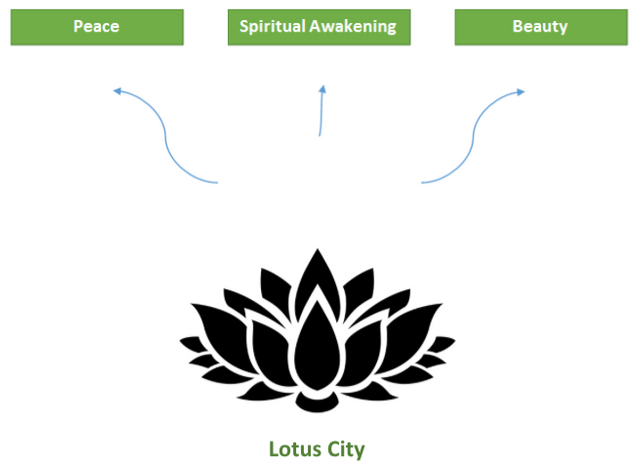
Really fascinating idea. I hope to see this model flower in my lifetime, as we (humans) really need to rethink how we are living in this present paradigm. I live in Cambodia and am curious where you are thinking of beginning? You really should contact @menta as he has similar ideas in the pipeline...
Hi, thank you for your comment. I have already contacted @menta. I will give a better outline of my plan and how it could be implemented in part 2. :)
We should have a chat, this is highly compatible with our idea @steemitcity.
Will you be in Amsterdam next month?
I immediately thought of you. Bright minds....
I have already contacted @menta. We're going to meet each other at SteemFEST in Amsterdam. Will you and @l0k1 be there as well?
No. I live in Cambodia, but will reluctantly return to the US for a spell for my Brother's wedding, time with family and to begrudgingly enslave myself to replentish my savings before figuring my next step. But I'm glad you two will meet. Not only is he a good man with his heart in the right place, but he's full of positive, progressive, potentially world shaking ideas that their time has come. Be well. I hope to hear more in the future....
I also have similar ideas, and ideas about places this could work. There is potential locations in South America, Eastern Europe and South East Asia. As it is, even, big governments like the Chinese Government are trading power for economic prosperity in special zones. The only hiccup is that pretty much, any suitable location, has to have a big fat internet pipe.
I agree, there are several places this could work currently. The internet pipe is of the utmost importance. And this might actually be something we run into problems with here in Cambodia. We'll see how it develops over time, hard to say at this stage.
But yeah, places like Chili, Urugay, Albania, Bulgaria, Myanmar, Laos, .... All have their pro's and con's. I think in the end, politics will play a huge role in the location choice.
yup, it is the main obstacle
excellent post congratulations, thanks for sharing
Thank you! I'm glad to hear that you like it.
Really interesting topic. You have a new follower.
Hi, thank you for your comment! It's very encouraging to read that people like my work. :)
Really interesting stuff. And beautifully presented. Have you looked into the work of Jacque Fresco? His ideas on optimising city design are cutting edge. https://www.thevenusproject.com
Hi, Sam. Yes, I am familiar with Jacques Fresco's Venus Project. Honestly, I'm not so fond of the project due to its emphasis on the abolition of private property. However, I would support any experiment with new forms of social organizations. :)
It's a great idea but .. ehrm... 'tricking' the established 'authority' into relinquishing its power is not easy.
However, in poor places, with small governments that don't tax high and have big problems with corruption... it's really just a matter of getting enough money and making the connections with the local 'authorities'. These people are probably the most hungry for good publicity, and will cost the least to convince that maybe they might benefit in money by sacrificing their power.
Yes, I am also concerned with convincing authority. We have already contacted some top officials in Cambodia, and are waiting for a meeting in which we can discuss the plan. It may be too large and too audacious, but we can also scale things down. :)
Yes, little things, maybe even just start with a house, or a village... But as small projects pan out, people will be easier to convince.
I toke a cup of thea before i read article. It really good. It is always a good idea when you started build up something in a country which just started to develop and the investing it not much as a rich country in Europ. I do have a lot contact in Cambodia also in Siem reap. If you need help with idea just tell me.